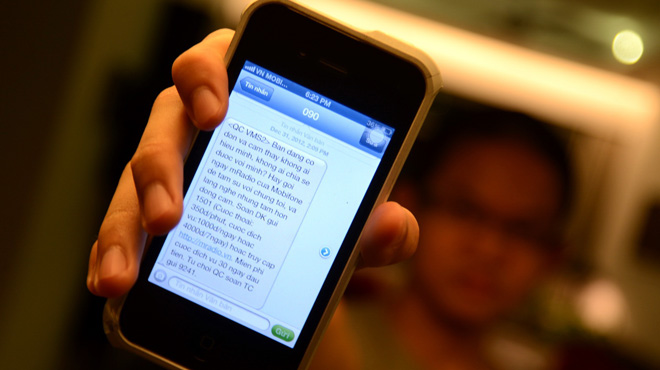It took the inspectors of the Ministry of Information and Communications by surprise to discover that many of the subscribers of the country’s three largest mobile operators are more than 100 years old or have names that are either meaningless or obscene.
These subscribers in fact used fake information to register their accounts, and the operators, including Viettel, MobiFone, and Vinaphone, simply failed to realize the inappropriate registrations and eventually approved them.
Starting June 2012, it was required by telecom law that mobile phone users register their account with accurate information such as identity number, full name, and date of birth, otherwise their accounts will be suspended. Subscribers must either visit the operators’ websites or bring the ID cards to their transaction posts to complete the registration.
The Ministry of Information and Communications has recently scrutinized all operators for their compliance, and ended up unearthing numerous violations from the said three firms.
The most common violation is that the network operators accepted registrations with ID cards that have blurred photos or do not have a photo at all.
There are cases in which subscribers used fake names or different information from the ID cards to register, but their applications were still approved.
Remarkably, Vinaphone has accepted registrations of subscribers that are more than 100 years old.
Meanwhile, MobiFone and Viettel have accepted registrations with the subscriber names bearing dirty meanings. Many subscribers of the two operators also registered with expired ID cards.
Secretly installed apps
Viettel, MobiFone, and Vinaphone have all been found to have installed apps that automatically download information and charge subscribers via their SIM cards without subscribers’ knowledge.
The apps do not send any warning messages to let users know that their accounts will be charged, or to confirm whether they want to use the service or not, the inspectors said.
These hidden apps help the operators rake in whopping profits.
For instance, during only a year from June 2012 to June 2013, Vinaphone earned more than VND20 billion (US$943,396) worth of profits from its IOD app, while the SuperSim and LiveInfo apps brought in more than VND150 billion for MobiFone. The apps update and display on the screen information such as news and football scores.
Many individuals and organizations have taken advantage of the loose management of the network operators to commit crimes such as threatening, disturbing, swindling, spreading spam SMS with inappropriate contents, the inspectors stated in their report.
These offences have caused damage to the victims targeted, as well as affecting public security and social order.
The inspectors have thus asked the network operators to set up technical systems that can detect the inappropriate registrations and impose sanctions on the violators.
Vietnam currently has more than 120 million mobile phone subscribers, with nearly 114 million being prepaid users.


















































